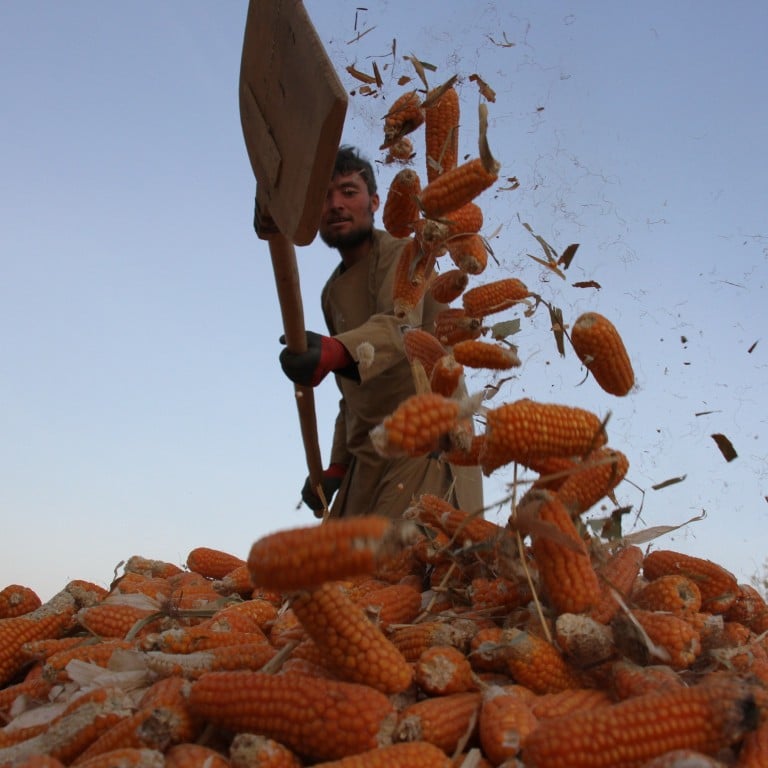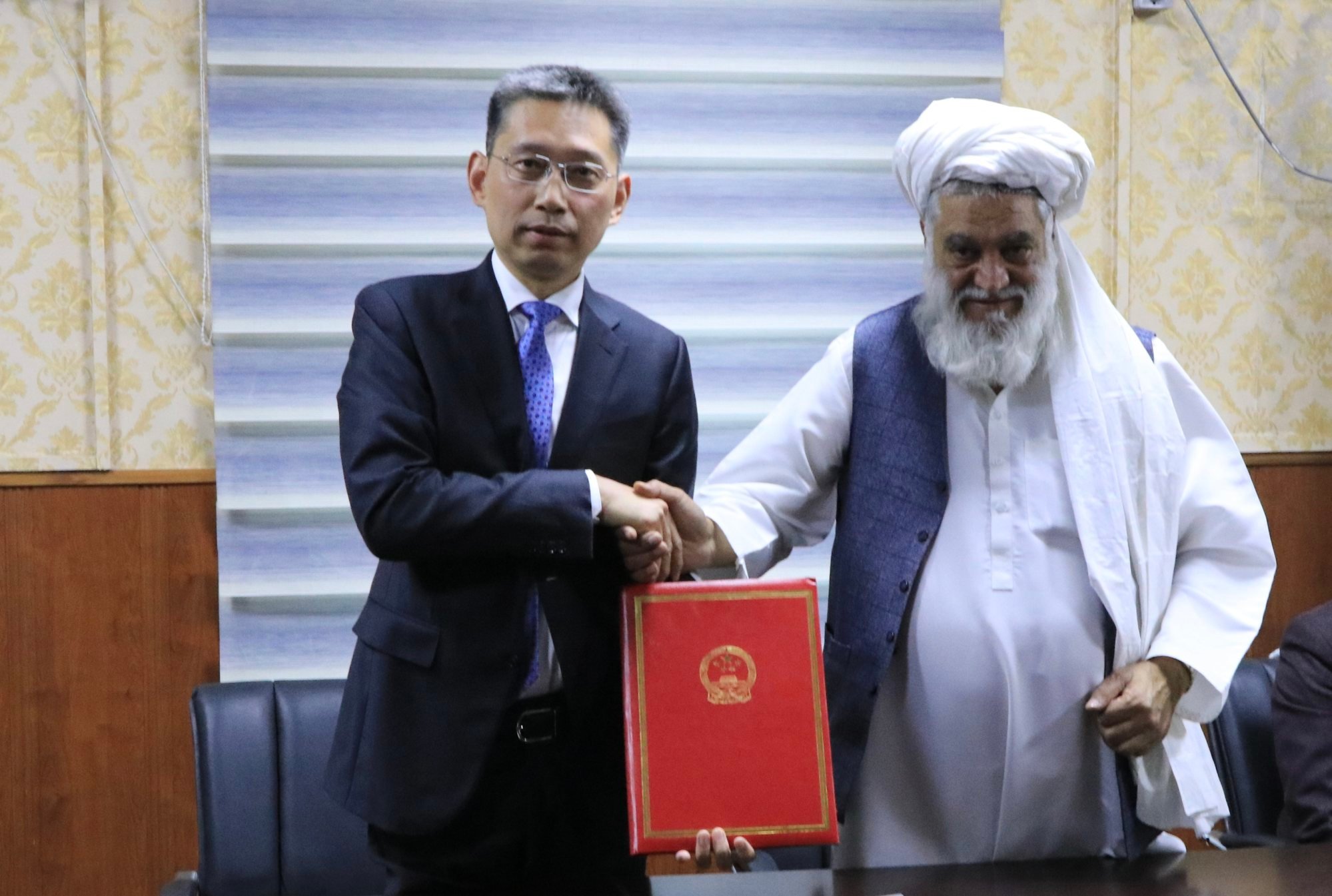
CIIE: China, Afghanistan cultivate deeper ties with agriculture deals
- As Afghanistan endeavours to pull its economy out of a post-war slump, China has stepped in with agriculture agreements that will boost trade and cement ties
- After US troop withdrawal and Taliban victory, the country presents a ripe opportunity for China to fill a power vacuum along its border
China is expanding its agricultural trade with Afghanistan, deepening relations with the war-torn country as it attempts a return to normal economic activity, tangles with sanctions from the West and rebuilds after a devastating earthquake in October.
The world’s second-largest economy may start importing Afghan pomegranates next month with an initial shipment of 1,000 tonnes via an “agricultural cooperation” deal, a trader at the China International Import Expo told the Post on Monday.
Those shipments would start after more than two years of approval and certification work, said exhibitor Shams Ullah Shams, general manager of the Afghanistan export firm Biraro. His company took 200 tonnes to the show as samples this month.

“We can’t sell them, just give them to our Chinese friends to try, and after five days they’ll be gone,” Shams said with a hopeful laugh.
Afghanistan’s once nearly US$20 billion economy crashed to US$14.58 billion in 2021 as the country of 40.1 million people experienced a food shortage. One in every two Afghans is poor, according to the World Bank.
The Islamic fundamentalist Taliban regained power the same year, after a long military struggle ended with the withdrawal of US troops.
‘Vested interests’: why China is backing Taliban regime in Afghanistan
It now faces post-war sanctions from the West, purportedly imposed over the legitimacy of its leadership and women’s access to education.
China is happy to build relations, starting with trade, to fill a void left by the West and seize opportunities for longer-term gain, analysts said.
“There was a huge vacuum after America withdrew, so I think the Chinese see this as an opportunity,” said James Chin, a professor of Asian studies at the University of Tasmania.
Two-way trade has been “growing fast” and China may become Afghanistan’s second-largest trading partner this year after Pakistan, business advisory Dezan Shira & Associates said in a February research note.
Afghanistan sent US$40.02 million in goods to China in all of 2022, with US$23.08 million of that tallied in the final two months, per the data. China exported US$550.13 million of goods to its Central Asian neighbour last year.
Opinion: How China can stop Pakistan from worsening Afghanistan’s humanitarian crisis
In the first nine months of this year, Afghanistan exported US$33.93 million worth of goods to China, which shipped US$959.69 million of its own wares the other way, according to Chinese customs data.
Afghanistan’s chief exports to China at the end of 2022 were nuts, animal hair, semi-precious stones, dried fruits and vegetable products, Dezan Shira said.
There may also be other motivations at play.
A boost in trade might eventually facilitate Chinese infrastructure projects such as pipelines for oil and natural gas, said Naubahar Sharif, head of the public policy division at the Hong Kong University of Science and Technology.

Whatever factors may be under consideration, Peking University international studies Professor Zha Daojiong said, relations will persist as China sees Afghanistan as a “neighbour that won’t go away”.
The countries share a 92-kilometre (57-mile) land border. With that in mind, he said, China “simply does not have the luxury of pretending that whoever is in charge there is irrelevant”.



